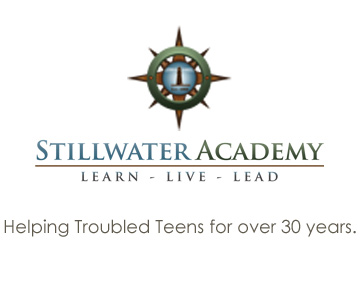Programs for Troubled Teen Girls
Directory of Programs for Troubled Teen Girls
| Academy, The Therapeutic Boarding School |
|||||
| Co-ed | Ages: 12-18 | Oregon | $4,900/mo. | ||
| Diamond Ranch Academy Therapeutic Boarding School |
|||||
| Co-ed | Ages: 12-17 | Utah | $5,100/mo. | ||
| Sorensons Ranch School Therapeutic Boarding School |
|||||
| Co-ed | Ages: 13-17 | Utah | $5,500/mo. | ||
| Cinnamon Hills Residential Treatment Center |
|||||
| Co-ed | Ages: 12-18 | Utah | $9,000/mo | ||
| Falcon Ridge Ranch Residential Treatment Center |
|||||
| Girls | Ages: 12-17 | Utah | $7,800/mo. | ||
| Integrity House Residential Treatment Center |
|||||
| Girls | Ages: 12-17 | Utah | $5,300/mo. | ||
| Rancho Valmora Residential Treatment Center |
|||||
| Co-ed | Ages: 12-17 | New Mexico | $180/day | ||
| Red Rock Canyon School Residential Treatment Center |
|||||
| Co-ed | Ages: 12-17 | Utah | $7,000/mo. | ||
| Rite of Passage Residential Treatment Center |
|||||
| Co-ed | Ages: 10-20 | Nevada | $130/day | ||
| Three Springs Residential Treatment Center |
|||||
| Boys, Girls | Ages: 10-17 | Alabama | $125-140/day | ||
| Turnabout - Stillwater Academy Residential Treatment Center |
|||||
| Co-ed | Ages: 12-20 | Utah | $7,850/mo. | ||
| Alldredge Wilderness Journey Wilderness Program |
|||||
| Co-ed | Ages: 13-17 | West Virginia | $300-395/day | ||
| Catherine Freer Wilderness Program |
|||||
| Co-ed | Ages: 12-17 | Oregon | $445/day | ||
| RedCliff Ascent Wilderness Program |
|||||
| Co-ed | Ages: 13-17 | Utah | $440/day | ||
Parenting Troubled Teen Girls
Are you parenting a troubled teenage girl? Adolescence in our culture is a time of enormous emotional as well as physical changes. Although each child is an individual and grows and develops in his or her own unique way, there are some predictable stages. When parents know what to expect, they can provide better help and support as their child moves through this often emotionally tumultuous time.
Most teenage girls struggle with a shaky sense of their new identity. They have not had the time and experience to sort out their own identity from the teenager stereotype they have been impersonating. Cultural stereotypes of the “perfect female” can be especially compelling and damaging. This can make for dating problems, as teens struggle with questions like: “How can I withstand the pressures of a relationship if I am unsure about myself?” or “How can I handle the danger of losing myself in the relationship?” Teens need to discover who they really are and to gain confidence in asserting themselves to be able to sustain a relationship with another person.
Some teenagers do lose themselves. They center entirely on another person, perhaps relieved to hand over to the other person the tough task of finding and asserting themselves. They find relief from their own confusion by taking on themes like: “I will be what you want” or “I will be all yours.” Other teenagers defend against losing themselves by becoming rigid and obnoxious, unbending in their self-assertion, inconsiderate of other persons’ feelings, and disrespectful of their rights.
Another problem among teenage girls is how to handle their moods, sexual urges, and feelings. Some adolescents try to cope by using alcohol, drugs or food to reduce or numb their feelings. Others happen on equally destructive methods for distraction, like rigid control of eating, cutting, or retreating into lethargy. More constructive strategies can be an intense involvement with a sport, overemphasis on school and grades, or a single-minded pursuit of a goal.
Parents can play a key role by continuing to love their teenage daughters no matter what happens, by being realistic relationship �veterans� who have learned some things along the way, by comforting them when they are hurting, by supporting the positive, by setting limits which may be fought against and yet appreciated, by encouraging their children to continue to pursue new experiences and relationships even though they may be painful, by espousing values which will sooner or later become their children�s values, by not preaching or using their own experience as a �good� or �bad� example, and by reminding their child of the bigger picture, including preparing and supporting them as they attempt to move to the next stage of life � young adulthood.
Other adults � aunts and uncles, parents of friends, teachers, coaches, employers� also can be very important supports. These relationships, being less complex than parent relationships, can give examples of other relationship possibilities, contribute to a a teenage girls confidence about being able to function and be appreciated �out in the world,� and provide a helping hand as she moves toward young adulthood.
Programs that Can Help Troubled Teen Girls
Programs that help treat troubled teen girls include boarding schools, residential treatment centers, wilderness programs, and boot camps.
Many different types of programs have proven successful in helping troubled teenage girls sort out some of the difficulty they may be having adjusting to being a teenager and learing to find out who it is that they really are. By stepping out of the pressures of "normal" life, residential treatment gives teenage girls a chance to look at their life more objectively and decide what it is that they really want, and figure out what is truly important in their lives. Treatment may also help give teenage girls a new perspective on their parents involvement and advice in their lives.
Programs for Troubled Teen Girls - eProgramSearch.com
List OptionsWant to save time? Contact all these Programs at once!
My Saved Lists:
Empty  Learn More About: |




